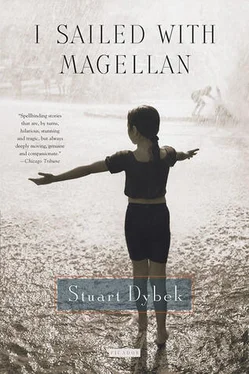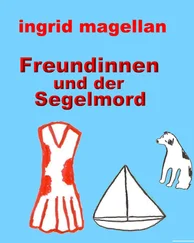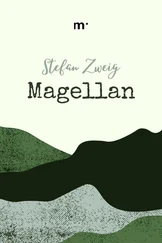The Kit Kat closed at three a.m., and by then Mick’s elbow was so swollen that he couldn’t roll down the sleeve of his bloodstained white shirt. Drunk, out of subway tokens, Mick hurdled the toll bar at the Times Square station. The exertion made the blood throb in his right arm as if the elbow joint might explode. He was dizzy, nauseous with pain, and figured he’d better get himself to an emergency room. The subway platform was empty except for a homeless guy asleep on one of the benches and an elderly Asian man doing tai chi. When the man saw Mick cradling his arm and woozily staggering, he paused in his exercises to ask what was wrong.
“I think it’s broken,” Mick said.
The old man gently traced his fingertips over Mick’s elbow; he studied Mick’s face as if examining his eyes.
“Will be all right,” the man concluded. “You need yunnan baiyao.”
“What?” Mick asked.
“Yunnan baiyao,” the old man said and had Mick repeat it. “It’s what the Viet Cong used on their wounds when they fought America.”
“Where can I find yunnan baiyao?” Mick asked.
As if sharing a secret, the old man told him an address in Chinatown.
Instead of going to the emergency room, Mick rode the train to Chinatown and wandered the shuttered streets. At six a.m., he stopped for tea in an all-night Shanghai place and, deciding soup might be medicinal, ordered a ginkgo-nut congee, and when he noticed on the menu something translated as “embroidered fish balls,” he ordered that, too, out of sheer curiosity. At eight a.m., he was waiting in the doorway when the Chinese herbalist came to open his pharmacy. Mick stepped into the shop’s alien atmosphere of dried herbs and powdered animals and inhaled a smell that seemed in itself curative.
Perhaps things would have gone differently if Mirza, who’d been taking classes at NYU, hadn’t been away at a weeklong dance seminar at SUNY, Purchase. She’d left a note dusted with glitter and embossed with a lilac impression of her lips, wishing Jimmy luck on his audition. Alone, Mick took the first dose of yunnan baiyao and washed it down with rum; then he settled onto the mattress in the pantry and fell into a fitful sleep with Leon purring against his wounded arm. It was as if the cat understood he was injured and would help heal him. For the next two days Mick lay tended by Leon, religiously taking the yunnan baiyao and rum, but otherwise fasting. By the third evening, when he dragged himself to work at the Kit Kat, his right elbow was the size of a melon and turning shades like rotting fruit. Vince, the bartender, took one look and hailed a cab to rush Mick to the ER at Lenox Hill. There, they had to put him under and rebreak the elbow in order to pin it together. Mick said he never fathomed the word pain until he woke from the anesthetic.
The injury ended his career as a bouncer. When he got out of the hospital and recovered enough to return to work, Mick found a job at a midtown clam bar. He was back to waiting tables, a role he’d already played for too many years in New Orleans. Mirza was through with the Kit Kat as well. She’d been accepted as an understudy in the Alvin Ailey company, and was devoting herself full-time to her dream of becoming a serious dancer.
“I know that dream stuff sounds like corny Hollywood shit, but I don’t know what else to call it,” she’d told Mick on the very first night they’d met at the strip club. And Mick said, “No, not corny, dream is a beautiful word— sueño, träumen, marzenie — a. word we’d die without. You can’t let cheeseballs fuck it up for you.” It had taken only a few weeks from that freezing night when Mick first saw Mirza dancing to Coltrane for them to move in together.
When Mick told me that they’d been “having their little squabbles lately,” I guessed that probably meant they’d been at each other’s throats. They didn’t argue during my visit, but they couldn’t conceal the tension. In contrast to Mick’s manic humor, Mirza brooded. Yet it was obvious she was still nuts about him. I could hear it in the teasing way she called him Yimmy as we roused Mick that Saturday morning from the mattress in their pantry bedroom. The way she called his name made him sound like a different guy than the kid I’d grown up with.
We roused Mick up, and the three of us, with the borzoi in tow, hailed a cab on Delancey and rode all the way uptown so Diablo could romp in Central Park, and from there we walked to a mercado on the West Side where Mirza bought the ingredients for pastellas. We spent the rest of Saturday afternoon rolling pastellas, which reminded Mick and me of the gowumpki Moms used to make, except that instead of a cabbage leaf, the filling was wrapped in a banana leaf. The pastellas were for a baptism party the next day in Astoria. The baby’s mother was Mirza’s younger sister, Chiqui. Mick was to be padrino. As his brother, I was welcomed, too.
Mirza’s family lived on welfare and couldn’t afford both a church service and a party after, so the priest performed the ceremony at the kitchen sink. He baptized the infant Milton Jimmy Marrero — Jimmy after his padrino, Jimmy Delacroix. That Sunday, on the Marreros’ little concrete patio decorated with balloons, beneath the canopy of low-flying jets from LaGuardia, it looked like my brother had found himself a new life complete with adopted family.
Mirza hadn’t asked me his age or anything about him, but at the christening party, on that last day of my visit, while Mick salsaed with her wide-hipped tias, two at a time to the tape of El Gran Combo, Mirza told me as if confiding, “When he’s not acting crazy, your brother is so sweet and has such a big heart. So generous! Chiqui loves him. He got her a job in the restaurant where he works and helped her sign up for night school.” Then she asked, “Perry, does your father like to drink?”
“He’s not much of a drinker,” I told her, and left it at that rather than explain that our father was the child of a brawling drunk who’d died in the state mental hospital, a father he never talked about.
“I guess I don’t even know if that’s good or bad news so far as Jimmy. I don’t know what he’s looking for or running from.”
From what Mick had told me the night before at the Village Vanguard to the yawp of Gato Barbieri’s sax, the problems with Mirza began after he broke his elbow. Mick implied that his inability to get roles was corroding their relationship. After too many drinks he’d referred to himself as “just another fly on the wall of the New York theater scene” and ranted about actors being treated like “the niggers of the art world,” phrases of a kind I’d never heard from him before. But Mirza told me that what worried her was that Jimmy wasn’t doing the things necessary to help himself, the way she was in pursuing her dream of dancing. He still hadn’t arranged to have a set of publicity pictures made, or typed a resume, or contacted an agent, and he refused to audition for what he called shitwork — which included anything other than serious drama.
“You’re his older brother, maybe you can tell him he needs to be more practical,” she said.
“I’m afraid that’s exactly the lecture our father constantly gave us,” I said, laughing.
She seemed to recoil, and I was sorry I’d laughed, as I could see she was by nature proud and private and wouldn’t be having this talk if it wasn’t terribly serious to her.
“Did Jimmy tell you how he got involved in Santeria?”
“No.”
It hadn’t occurred to me that anything in particular was necessary to get Mick interested in Santeria. He’d always felt most alive when crossing borders, most at ease in the foreign outposts of America. Our father was an immigrant, but Mick was the one who seemed to feel foreign — foreign in the church and Catholic schools we went to as children; foreign in Memphis, Tennessee; foreign in the face of My-Country-Right-or-Wrong and the government that jailed him for refusing to fight a war he believed was a crime against humanity.
Читать дальше












